HERI & Iziko Museums partnering for palaeoscience
The disciplines of archaeology and palaeoanthropology have for hundreds of years been monopolised by colonialism, excluding African people from the dialogue. The Human Evolution Research Institute (HERI) and Iziko Museums are working together to reframe this narrative by advancing research and community engagement.
“This partnership not only supports the fields of archaeology and the palaeosciences but opens up new and different spaces for students and gives our museums a broader platform for engagement,” says Wendy Black, HERI member and Chief Curator of Art and Social History at Iziko Museums.
Cutting-edge research
HERI and Iziko Museums are principally working to advance archaeological and palaeoanthropological research capacity, with a focus on nurturing African palaeoscientists for a future of work within African institutions. The result is an increase in capacity, and resource and knowledge sharing that strengthens student talent.
“We have archaeological collections at the museum that came in over the last 100 years, and many haven’t been studied in decades,” says Black.
To grow the capacity for African research, the partnership is advancing students to fill gaps by providing training in innovative research techniques. “We’re doing hard sciences, really cutting-edge stuff, and trying to develop that part of the discipline,” says Black.
HERI research associates at Iziko Museum are involved in a variety of projects, from studying ancient diseases to isotopic analysis. For example, HERI research associate, Tessa Campbell, is a postdoctoral fellow based at Iziko Museum’s Archaeology Unit.
Campbell, partly funded by the National Research Foundation’s (NRF) Professional Development Programme, works at the intersection of palaeopathology and ancient DNA with a focus on the history of infectious diseases in South Africa.
Her doctoral research into tuberculosis, conducted while at UCT, is among the first to examine ancient pathogen DNA locally. Her research has revealed that, despite a possible African origin for the disease, there is no evidence to support its pre-colonial presence in South Africa.
Public engagement
Developing research capabilities goes hand in hand with a need to strengthen community engagement in palaeoscience, says Campbell. According to her, this is important for HERI and Iziko Museum’s goals of broadening the reach of science beyond the academic to reach more public audiences.
“Museums are aptly positioned in this intermediate space because they are responsible for both generating knowledge and sharing it with the public in meaningful and engaging ways,” she says.
One of the ways HERI & Iziko are doing this is through the development of a new exhibition, called Humanity, launching on Heritage Day 2023 at the Iziko South African Museum.
“The exhibition reframes humanity’s origin story as one that centres on African diversity, as well as our understanding of the complex origin of our biologically and culturally rich species,” says Rebecca Ackermann, HERI co-director.
In particular, the exhibition examines the issue of race through the lens of skin colour and modern South African diversity before going back in time to 4 million years ago to reveal ancient evidence of past peoples on the continent.
“While the traditional telling of the human origin story is one of succession, competition and conquest, the Humanity exhibition changes this narrative by highlighting the complexities of hominin connections across space and through time,” says Campbell.
By collectively holding workshops, consultations and public engagements around the exhibition theme and content, the institutions have ensured a synergy between the story being told by science and the perceptions of various communities around the story of our origins.
“We've turned the idea of how we study and speak about human evolution on its head, so that it's more accessible to our public,” says Black.
New generation of researchers
By developing the exhibition in this way, HERI and Iziko Museums hope to inspire interest in the palaeosciences and boost curiosity about the field. “Our goal is to encourage and support new generations of African researchers,” says Campbell.
Indeed, palaeosciences have been, and still are, dominated by white male researchers from western countries. This influences not just the story of our human origins, but who is attracted to the field of human evolution research.
“Human evolution, as told in textbooks, is a story of a series of remarkable discoveries by white men,” says Ackermann. “Our work is in contrast to this.”
By working together to drive knowledge generation and dissemination around the racist and colonial history of the discipline, and through active community engagement and trust building, Ackermann says the Iziko Museums partnership complements other work being done by the HERI.
This includes the annual women’s field camp, and funding opportunities aimed at supporting young black women researchers from South Africa.
“HERI and Iziko Museums are partners in a bigger vision of a diverse future for palaeoscience, where we can encourage the next generation of African scientists to bring their ideas and take a rightful seat at the table,” says Ackermann.
